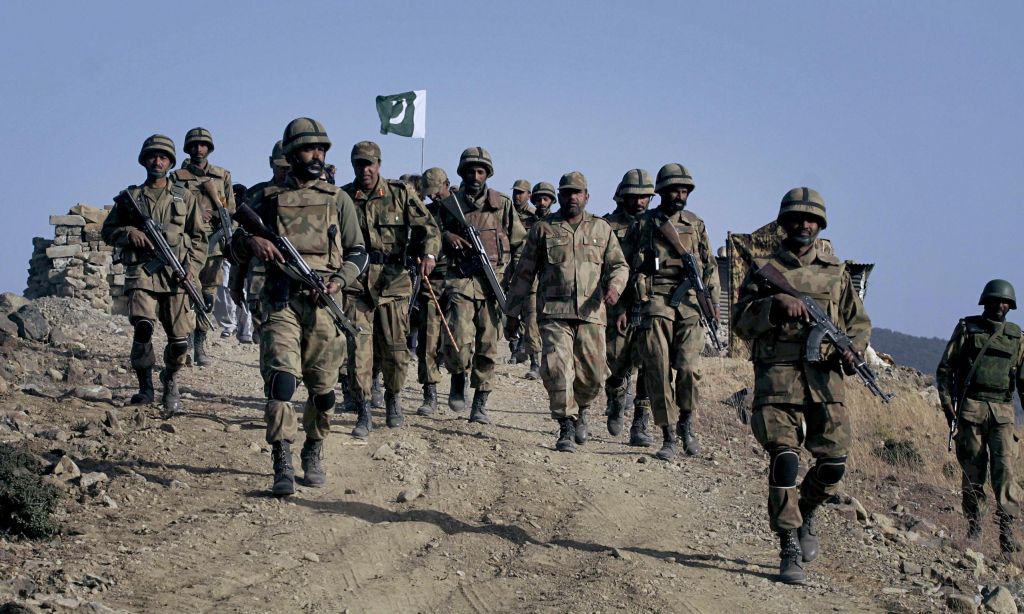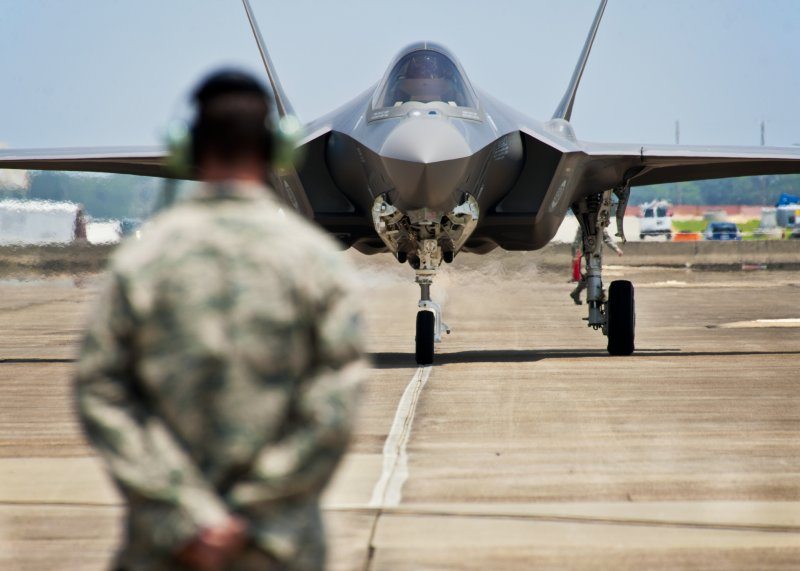Pakistan on Monday launched fresh air strikes on the northwest tribal region where it has deployed up to 30,000 troops in a long-awaited offensive to eliminate Taliban and Al-Qaeda militants from their border stronghold.
The action in North Waziristan was launched a week after a brazen insurgent attack on Pakistan’s main airport in Karachi which left dozens dead and marked the end of a troubled peace process.
The offensive was announced on Sunday, shortly after airstrikes killed at least 105 people including insurgents linked to the airport raid, and jets and helicopter gunships continued to pound the region over the weekend.
A local security official said fighter jets bombed two government schools west of Miranshah — the main town of North Waziristan — early Monday, killing at least 10 Uzbek militants who were sheltering in them.
The military announced the offensive on Sunday, saying it would wage “a comprehensive operation against foreign and local terrorists who are hiding in sanctuaries in North Waziristan”.
Defence Minister Khawaja Asif said that the time for dialogue was over and that the nation could no longer tolerate attacks on “innocent Pakistanis and damage to national assets”.
“This operation will continue till the surrender or elimination of enemy,” he said.
The Karachi airport siege was claimed by Taliban and Uzbek militants holed up in the district on Afghanistan’s border — considered the last remaining stronghold of Islamist militants in the region.
An operation in the region has been a long-standing demand of Pakistan’s Western allies. Washington accuses Islamabad of using the area to give sanctuary to the Haqqani network of fighters, known for their raids on NATO targets inside Afghanistan.
A military official in Miranshah told AFP: “Thousands of troops will participate in this action. You can roughly say 25,000 to 30,000 troops will be involved in the operation.
“We are trying to finish this operation as soon as possible but can’t give an exact time frame. It can conclude in a few days but can also take longer,” he added.
At least another 10 militants were killed in attacks by Pakistani helicopter gunships in the village of Mir Ali as the fighting got underway Sunday, a local intelligence official in Miranshah said.
Shoot-on-sight orders
The initial overnight air strikes on Saturday killed at least 105 people according to the military — though local officials placed the toll as high as 150.
One official said the alleged Uzbek mastermind of the Karachi attack had been killed in the air strikes.
“Abu Abdul Rehman Almani, who was mastermind of attack on Karachi airport, and several other commanders have been killed in the strikes,” he said.
Some 40 percent of the region’s population of half a million have already fled the violence, leaving around 300,000 behind, residents told AFP.
Shoot-on-sight orders have been imposed on those who leave their homes after dark, according to local intelligence officials, leading to two people being critically wounded near Miranshah.
In Miranshah itself, imams made announcements from mosque loudspeakers asking people to recite from the Koran and pray to God for the safety of those who remained behind.
US drones were also spotted hovering overhead, raising suspicion that Washington and Islamabad were coordinating their efforts after two US drone attacks — the first this year — killed 16 militants on Wednesday.
Dialogue over
Washington reportedly suspended its drone attacks in December to give Islamabad time to pursue peace talks with the Tehreek-e-Taliban Pakistan (TTP), aimed at ending a seven-year insurgency that has claimed thousands of lives.
The dialogue resulted in a month-long ceasefire between March and April, but later broke down, with Pakistan resuming air strikes on suspected militant hideouts in the tribal areas.
The army was widely seen as being opposed to the dialogue because of the heavy casualties it has sustained at the hands of the TTP.
Talat Masood, a retired general and security analyst, said the army would aim to end its operation before the Islamic holy month of Ramadan which begins around June 28.
“It should go only for two three weeks and then troops can be stationed in the area to control the situation and consolidate the positions,” he said.
The operation’s success, he added, was contingent on sealing the porous Pakistan-Afghanistan border which foreign fighters including Chechens, Uzbeks, Turkmen, Tajiks and Uighurs have crossed in recent weeks.
A military statement said Afghan security forces “have been requested to seal the border on their side to facilitate elimination of terrorists who attempt to cross the border”.
It added that announcements would be made for local residents to approach designated evacuation points.
“Surrender points have also been made for those militants who chose to quit violence and give up their arms,” it said, without elaborating on their fate.











